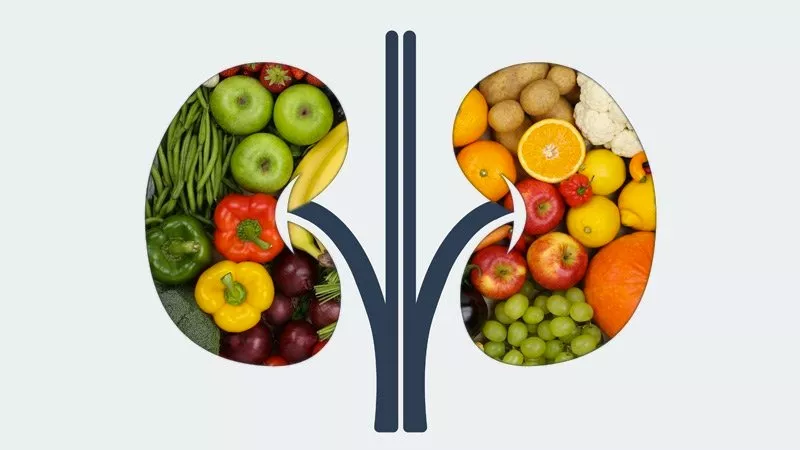Kidneys are one of the most vital as well as complicated organ in the body. Chronic kidney disease is a condition, where there is permanent damage and scarring of the kidneys and is not amenable to any specific curative treatment. It is a progressive disease and eventually reach end stage kidney disease when you have to undergo either dialysis or transplantation to sustain your life.
One of the key points to slow down the progression of kidney disease is to follow the renal diet. Kidney damage causes derangements in the salt and fluid balance in the body, variation in the electrolytes like sodium, potassium, calcium, and phosphorus and also affects the acid-base balance in the body. It is important to keep these parameters under check by following a strict diet prescribed by your Nephrologist or renal dietician
Following tips to be followed regarding the diet in patients with chronic kidney disease.
Salt
Reduce the salt intake. Keep it around 4g/day. Avoid added salt like pickles and pappad. More the salt, more fluid retention happens, resulting in worsening of hypertension, swelling and breathlessness. Restricting salt will help in reducing the blood pressure. Avoid salt substitutes. Avoid fast foods, frozen foods, and canned foods as it is high in sodium
Water
Majority of the patients with chronic kidney disease will have excess water in the body. Water and other liquid items should be restricted in most of them. Keep the intake around 4 to 6 glasses per day roughly around 1000 to 1500 ml. Very rarely in chronic kidney disease patients, you can have preserved urine output. In such a case, you can take water as much as you want.
Protein
Reducing the protein intake is of paramount importance. More the protein, more load to the kidney and can further worsen the kidney damage. But protein is the building blocks of our life. It is required for many bodily functions including immunity. Too much restriction of protein can cause malnutrition, increasing the risk for infections.Normal daily recommended protein intake for a healthy individual is 1g/kg. For e.g., if you are a 60 kg individual, you are supposed to eat 60 g protein per day. If you have chronic kidney disease, you need to reduce the protein intake to 0.8 g/kg, that means around 50 g per day.Normal daily recommended protein intake for a healthy individual is 1g/kg. For e.g., if you are a 60 kg individual, you are supposed to eat 60 g protein per day. If you have chronic kidney disease, you need to reduce the protein intake to 0.8 g/kg, that means around 50 g per day.
Phosphorus
In patient with chronic kidney disease, phosphorus excretion is reduced, and its level increases in the blood. It will draw the calcium from the bones and causes bony weakness. High phosphorus can cause itching of the skin and cause vascular calcification (calcium deposits in the blood vessels) which can lead to heart ailments. Phosphorus rich diet should be avoided like meat, poultry, fish, dairy products (cheese, milk, ice creams, custard, yoghurt), nuts, beans, processed and canned foods. Other foods like chocolate drinks, cocoa, chocolates, pizza, beer should be avoided.
Potassium
Patients with kidney failure, will retain potassium in the body and excess potassium in the blood is very dangerous, which can directly affect the heart. If it is too high, it can cause silent cardiac arrest. Potassium rich food must be avoided. Restrict fruits intake and intake of raw vegetables. Some people consume raw vegetable juices for the control of sugars. That must be strictly avoided once kidney disease sets in as consumption of these juices will worsens the potassium levels and can be detrimental. Among vegetables, avoid green leafy vegetables, coconut, and tomato. Boil and preferably leach the vegetables (especially potato and beetroot) before consuming. Fruits that are to be avoided include oranges, bananas, raisins, kiwi fruit and dates which are high in potassium. Avoid fruit juices and coconut water. Fruits that can be consumed include, apple, guava, pineapple, berries, plums, pear, and papaya, but the quantity to be restricted to 100 g/day.
Fats
Avoid fried items and bakery items. Restrict the intake of oil.
It is very important to consult your Nephrologist and renal dietitian to have a customised diet plan as per your needs which must be designed based on your blood reports and stage of chronic kidney disease.





